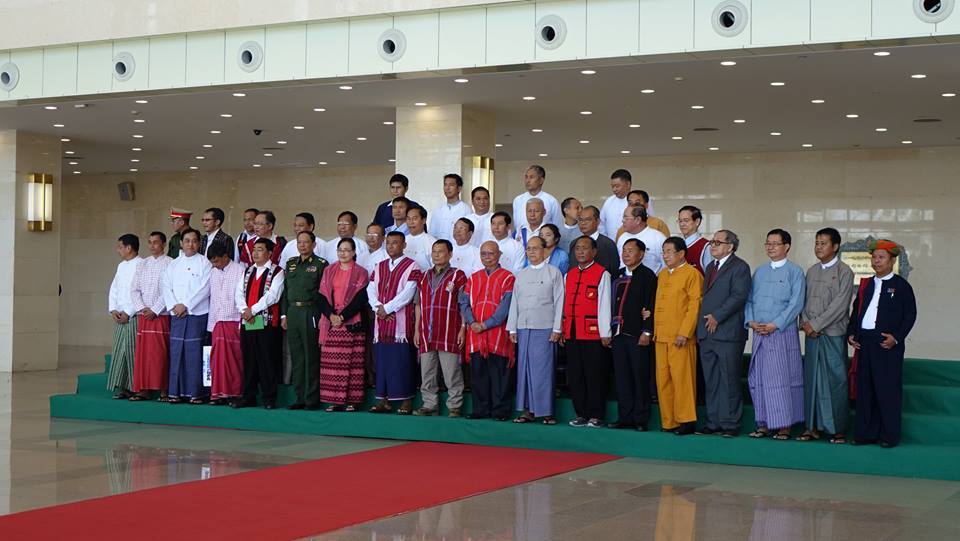Representatives of 12 ethnic armed groups held meetings with Burmese President Thein Sein and military Commander-in-Chief Snr-Gen Min Aung Hlaing on Monday to discuss a proposed ceasefire and prospects for peace.
Hkun Okker, leader of the Pa-O National Liberation Organisation and a spokesman for the ethnic bloc’s Nationwide Ceasefire Coordination Team, said the 12 armed-group delegations were granted about five minutes each to speak directly to the president.
“Mainly we raised issues about the ceasefire, internal peace, political dialogue and a federal union,” Hkun Okker said. “We also handed the president a letter, but we cannot yet disclose its contents.”
Nai Hantha Bon Khai, an executive member of the New Mon State Party, said his delegation urged the president and the commander-in-chief to work “generously” with ethnic nationalities to form a federal union.
“We told the president and the military chief that all ethnic groups genuinely long for peace and are working hard for it, and we urged them to strive to help facilitate steps towards building a federal union through the ceasefire and political dialogue,” Nai Hantha Bon Khai said.
Thankhe, chairman of the All Burma Students Democratic Front, said his group presented their opinions on how to deal with three issues critical to solving Burma’s political problems: amending of the 2008 Constitution ahead of the 2015 elections; implementing a nationwide ceasefire and political dialogue; and recognising the struggle of labourers, farmers and student communities.
“Only when these three issues are dealt with will we overcome all the other challenges that everyone faces and ensure a smooth transition in 2015,” he said.
[related]
Thankhe added that Thein Sein had assured the delegation of his intent to facilitate a nationwide ceasefire agreement before the end of his term and expressed a wish to sign one by 12 February, the country’s Union Day.
He said Min Aung Hlaing pledged that the Burmese government forces will operate within the boundaries of the law to ensure stability, peace and development. Thankhe said the military chief also emphasised the six-point policy of the military regarding the peace process.
Sixteen armed groups engaged in the peace process with the government were invited to attend the Independence Day military parade. Only four groups declined: the Kachin Independence Organisation, Karenni National Progressive Party, Chin National Front, and the Ta-ang (Palaung) National Liberation Army.
Monday’s meetings took place in Naypyidaw a day after the ethnic leaders had joined the president in attending Independence Day celebrations which included a military parade.



